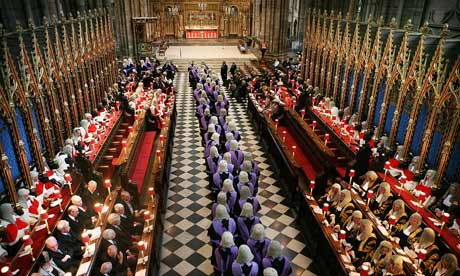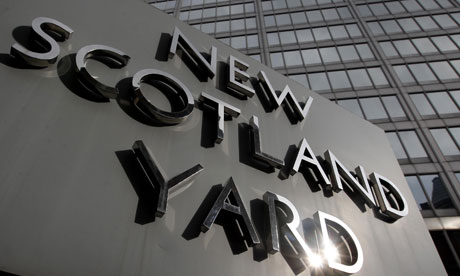Robert Menard’s movement has captured the headlines and the justice system’s attention because members reject government, its laws ... and its taxes.
 |
|
Robert Arthur Menard is a leader of the controversial Freeman-on-the-Land movement.
|
They are the
“unconsenting and ungoverned.” They avoid paying income taxes, don’t
carry documents such as a health card or driver’s license and “embrace
the law” to fight the law.
They are the members
of the loosely knit Freemen on the Land movement, which hit the
headlines last week after Calgary tenant Andreas Pirelli allegedly
declared a pensioner’s property his sovereign “embassy.”
Freemen insist online,
however, the movement is not about doing harm to others. It’s
“spiritual libertarianism,” the belief that everybody is equal in the
eyes of God.
Robert Menard, 50, has
been called a “guru” and “poster boy” for the Freemen. A former standup
comic and construction worker, he served four years in the Royal
Canadian Regiment because he “loves” Canada. This is an edited version
of a lengthy email exchange:
Q: Your title is Director of Freemen on the Land but it’s counterintuitive to have a hierarchy, no?
A: We (have)
more of a level field with folks accepting responsibility for various
duties as they feel the need arise. It is more like a voluntary relay
race. We are way too unorganized to have a hierarchical structure.
Q: How did this all start?
A: For me it
started when a government agent denied me access to the courts by
threatening an infant with harm. I felt deeply betrayed by the
government of the country I was willing to put my life on the line for.
So I started studying the law.
Q: Could you, briefly, describe what the movement is all about?
A: It is based
upon embracing the rule of law, which states that we are all equal.
Because of equality, no one may lawfully govern another without consent.
Through misrepresentation, outright lies, propaganda, the public is
told that we hate our country when we love it. They are told we are
anti-government when we are pro-good government. They are told we think
we are above the law when we actually simply refuse to accept that those
in power are. They are told we refuse to pay our share when we demand
an accounting.
Q: Do you really number 30,000?
A: That is not the number we put out there. The government has done that.
Q: Why not Free People?
A: Freeman is a
gender neutral term, just like “human.” It is from the Bible, where we
are told there are only three statuses which people can hold: slave,
bonded (indentured) and freeman. Average citizens now, through
application for social benefits such as ID, welfare, EI, and CPP become
bonded and are not freemen.
Q: Your
movement has been denounced by at least one judge and law society as
being “vexatious litigants” while its leaders profit from selling
followers the tools to represent themselves in court.
A: I laugh at
the idea of lawyers and judges crying about how the people they impose
their “services” upon are no longer playing along but instead are
questioning their claim to authority. All these acts and statutes and
regulations, who do you think crafts them if not lawyers? So we have
essentially a private society, to which neither you nor I belong, and
from which most if not all judges are drawn, claiming the right to
exercise a monopoly on the creation of these words, in a language all
its own (legalese), which they then claim we cannot understand, but
which they call “The Law.” To understand these words, it is suggested
you “seek legal advice” by talking to a lawyer for $200. That’s per hour! The judges then claim a monopoly on the interpretation of those words.
I make all my videos
and books available for free on the internet. Shows are usually by
donation. Packages are available online at the World Freeman Society,
but that goes to supporting operations. (My) goal is educating people.
Q: Why should Freemen get a free ride?
A: We do not
want a “free ride “at all. We also do not want services imposed upon us
which we do not desire. We do not wish to be tricked into becoming wards
of the state. We have a fundamental right of association; this includes
being associated with a SIN. I have chosen to not have one. This means I
give up the benefits of having one, such as welfare, EI, CPP and other
federal benefits. That is as much my right as your right to decide to
have one. Since I do not have one, I also do not have an account with
Canada Revenue Agency. Since I have no account with them, I have no
obligations to them.
Q: What about guns?
A: I believe we
have a right to own firearms for lawful purposes. These include hunting
for sustenance. I do not believe we should have unfettered access to
automatic weapons or weapons of war. I do not believe people should be
walking around armed, unless they are in bear country.
Q: Do you see the movement growing?
A: Yes. Because the government is growing, and (has) forgotten who works for whom.































